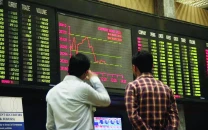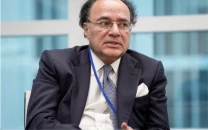'Budget deepening inequality'
Experts say FY26 plan ignores public welfare, pushes for more loans

After the federal budget, ordinary citizens face growing financial pressure while the elite continue to enjoy privileges, economic nationalists said.
They criticised the 2025-2026 federal budget as a collection of unrealistic ambitions and contradictions, claiming it has failed to offer meaningful relief for the public.
According to them, the budget is full of unrealistic ambitions and contradictions. It has failed to provide any substantial relief in essential areas such as poverty eradication, job creation, healthcare, and education. Instead, a series of new direct and indirect taxes has made basic necessitiesincluding flour, cooking oil, tea, and milkmore expensive.
They fear that rather than alleviating poverty, the budget is likely to further increase the miseries of common people.
Thus, the nation's wealth is being further diverted toward the privileged class — affluent businessmen, influential manufacturers, and manipulated chambers, who may have big visions, but not big hearts for the common people.
They said solar energy has become a public good providing much needed relief to common people who have been under the onslaught of unbearable utility bills. Ironically, the current budget has imposed a new 18 % tax on solar panels thus producing a new killing blow to common people further marginalising their lives, funds and savings alike.
Despite the government's tall claims, the gap between the state and society continues to widen, inching toward social unrest. The political capital of the incumbent government is under serious threat. High inflation, rising prices, new levies on petroleum products, and fresh taxes on solar panels have together become a draconian nightmare for common people.
Speaking about the federal budget beyond numbers highlighting a common man perspective, economic strategist and regional expert Dr Mehmoodul Hassan Khan said, elitist economics is creating ripples in the lives of common people in the country because of its immense and unbridled political cartelisation and so-called democratic cronies in the shape of members of provincial assemblies (MPAs), members of national assembly (MNAs) and ministers whose salaries and other associated benefits have unnecessarily been further increased, while giving a wrong message.
Consequently, social activists and liberals have termed so-called political messiahs as mafias who are eroding national exchequer for their own whims-cum-wishes.
Additionally, the federal finance minister did not have any justification of this increase because being a member of the national assembly salary of these legislators has been enhanced every year on a regular basis. Thus the Finance minister seems to be compromised before its political fraternity, he added.
"Initiation of people's friendly programmes and projects in terms of social development at the gross root level (Chinese CPC model of good governance), social entrepreneurship (models of Uzbekistan, South Korea, Vietnam, Brazil, Cuba, etc.), holistic and comprehensive social nets for deprived and middle class, provision of free health facilities (Chinese model of public health and poverty reduction), provision of free food stuff to poor students (Indonesian model) through financial fine tunings and policy readjustments is the need of hour.
He suggested initiating people-friendly programmes and projects focused on grassroots social development drawing inspiration from the Chinese CPC model of good governance is the need of the hour. Models of social entrepreneurship from countries like Uzbekistan, South Korea, Vietnam, Brazil, and Cuba should be studied and adapted. "There is also an urgent need to establish holistic and comprehensive social safety nets for the deprived and middle class, ensure free healthcare (as in China's public health and poverty reduction model), and provide free food to poor students, following the Indonesian example. These measures can be made possible through financial fine-tuning and policy readjustment, Khan said.
Re-activation of micro financing facilities for social development, participation of the private sector, wealthy clergy, proper utilisation of holy shrines, charities, and a balanced growth model would be the right way, he remarked.
Only purposefully exempting real estate, construction and sugar sectors will achieve nothing because common people know that the heavy presence of housing societies, tycoons, infrastructure barons and mafia in legislation have their own vested interests and have nothing to do with the massive slumps nests of the common people in the country, the expert commented.
Renowned economist Dr Shahid Hasan Siddiqui, speaking in a television programme, remarked that over the past three years, poverty and unemployment have increased, while the most powerful segments — such as the stock exchange, corporate sector, and banks — earned record-high profits for the first time.
He said, "The government always talked about export-led growth, but no significant growth is seen in export figures from 2022 to 2025. In the last two years, our remittances surged by $10 billion — unmatched in the region. Exports didn't rise over three years, while skyrocketing remittances caused major tax losses."
The federal budget appears designed to secure continued International Monetary Fund (IMF) tranches and funding from other institutions to keep the limping economy afloat. But if this trajectory continues, we may, God forbid, return to the IMF again after 2027 — part of what some see as a larger geopolitical game and this budget is turning us to this direction, he cautioned.




















COMMENTS
Comments are moderated and generally will be posted if they are on-topic and not abusive.
For more information, please see our Comments FAQ